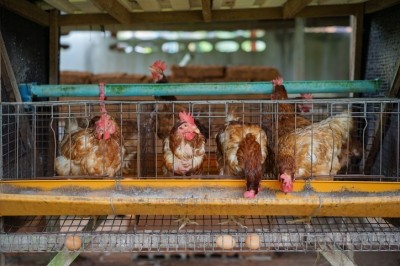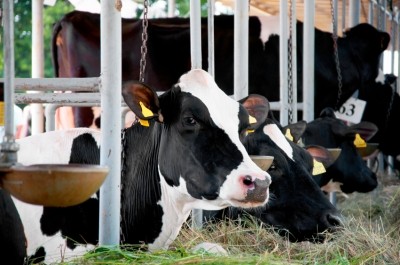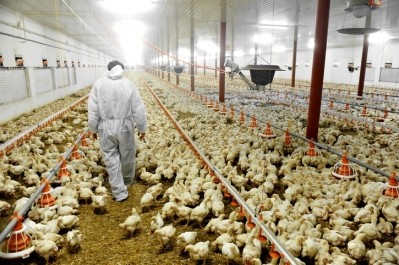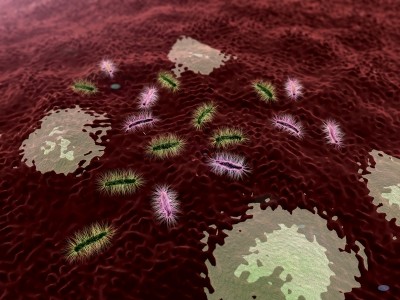Special Edition: Gut Health
Cytidine and uridine may boost chicken performance, gut health
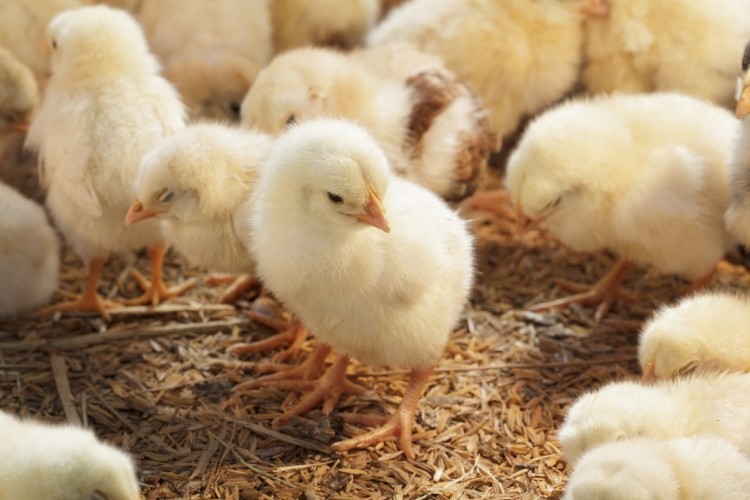
An international team of researchers from Iran and the US examined the use of pyrimidine nucleosides in broiler feeds. The team published its findings in the journal Livestock Science.
“The current study was carried out to assess the effects of pyrimidine nucleosides on the growth performance, morphology and maturity of intestinal cells, serum biochemical indices and immune response in broiler chickens,” said the researchers.
The team found that adding a combination of cytidine and uridine to broiler diets could improve some performance factors for broilers, they said.
“The present results have shown that a combination of pyrimidine nucleosides could improve growth performance, intestinal morphology and enzyme activity in broilers,” said the researchers. “The lipid profile, IgA activity and relative weight of Bursa were enhanced in chicks receiving uridine plus cytidine in their diets.”
Why pyrimidine nucleosides?
Pyrimidine nucleosides are a type of non-protein nitrogenous compounds that contain cytidine and uridine, they said. While earlier work has looked at yeast to provide nucleotides for studies with poultry, there has been little work done assessing the use of pure pyrimidine nucleosides in broiler diets.
Nucleotides are compounds known to play important roles in several biological processes, said the researchers. While different pathways can provide nucleotides for maintenance, they are costly on a metabolic level.
Some cells, like those in the intestine and immune system, also have little ability to synthesize their own nucleotides and depend on them to be provided through exogenous sources, they said. Cellular requirements of nucleotides may increase during certain conditions including rapid growth, periods of reduced intake, disease or active immune response.
Previously, it was noted that rapidly growing animals need exogenous nucleotides to support the growth rate of organs including the intestine and immune system, they said. It also has been demonstrated that dietary nucleotides can improve villus height and width, and alter other characteristics in parts of the intestine.
“Deng et al. (2005) evaluated the effects of dietary yeast RNA (0, 5, and 10 g/kg diet) on various immunological parameters in Leghorn layers and demonstrated that yeast RNA could improve humoral and cellular immune response during the experiment, but this result was unsustainable over longer periods,” said the researchers.
However, much of the previous work examining the role of nucleotides in broiler immunity and performance looked at using a yeast extract to generate the nucleotides, they said. However, those supplements may contain varying amounts of nucleotides and other nutrients like vitamins, viable cells, amino acids and cell wall components.
Dietary nucleotides also have to be enzymatically hydrolyzed to nucleosides and bases before they can be absorbed in the intestine, they said.
“We examined the effects of purine and combinations of purine and pyrimidine nucleosides on various parameters in broilers (Daneshmand et al., 2017a, 2017b),” the researchers said. “The results of these experiments showed that adenosine (Daneshmand et al., 2017a) and [a] combination of adenosine + cytidine + uridine (Daneshmand et al., 2017b) improved growth performance, intestinal morphology and enzyme secretion and immune function in broilers.”
Methods and materials
In the feeding trial, 361 chicks were given one of four diets for a period of 21 days, said the researchers.
The diets included a corn-soybean meal control diet, the control diet with 0.1% pure uridine, the control diet with 0.1% pure cytidine and the diet with 0.1% of a uridine and cytidine combination, they said. Nucleosides used were donated by Chemoforma AG.
Body weight (BW) and feed consumption by cage were recorded on days 10 and 21 to establish average daily gain (ADG), average daily feed intake (ADFI) and the feed conversion ratio (FCR), they said. Mortality was noted and the diet was checked for crude protein, calcium and total phosphorus.
Blood samples were collected from a sample of birds on days 11 and 21, said the researchers. The viscera were collected along with the intestine, digesta, Bursa of Fabricius and spleen.
Intestinal samples were checked for villus width (VW), villus height (VH), villus-crypt junction, crypt depth (CD) and the ratio of VH to CD was determined, they said. Enzyme activity in jejunum samples also was analyzed along with concentrations of triglycerides, cholesterol, uric acid, immunoglobulin G (IgG) and immunoglobulin A (IgA).
Results
Overall, the lipid profile, relative weight of Bursa and IgA activity were improved for chicks getting the supplemented diet, said the researchers.
“Therefore, supplementing broilers’ diet with uridine plus cytidine enhanced economically important attributes such as performance, intestinal health and immunity in broilers,” they said.
Birds getting the diet with a combination of nucleosides had better BW and ADG compared to control birds for the length of the experiment, they said. That diet also increased VW and VH to CD.
The combination diet also resulted in higher alkaline phosphatase, aminopeptidase, high-density lipoprotein, uric acid and IgA, they said. It lowered levels of total cholesterol.
“Dietary treatments did not affect the relative weight of the spleen during the entire experimental period,” said the researchers. “The combination of cytidine and uridine increased the relative weight of the Bursa of Fabricius compared to the control group at sampling days 11 and 21.”
However, additional work is needed to better understand how the feed additives would perform in a real-world setting, they said. “Because the present study was carried out under strictly controlled sanitary conditions, further work is warranted in order to examine the proficiency of pyrimidine nucleosides under more challenging and authentic poultry farm conditions,” they added.
Source: Livestock Science
Title: Effects of pyrimidine nucleosides on growth performance, gut morphology, digestive enzymes, serum biochemical indices and immune response in broiler chickens
DOI: doi.org/10.1016/j.livsci.2017.08.005
Authors: A. Daneshmand, H. Kermanshahi, M. Mesgaran, A. King, S. Ibrahim
